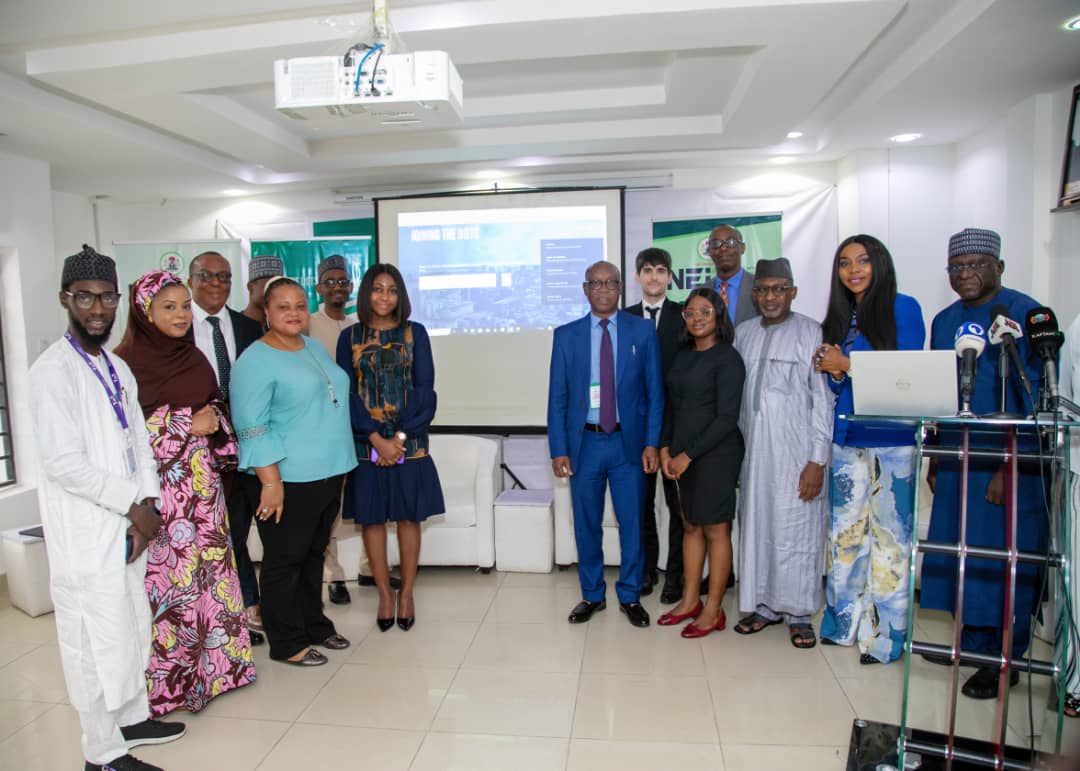A portal to provide access to the public about information and data on politically exposed persons as well as persons with significant control of assets in Nigeria’s extractive industry was unveiled on Tuesday in Abuja.
The portal was unveiled by the Executive Secretary of the Nigerian Extractive Industries Transparency Initiative (NEITI), Orji Ogbonnaya Orji, at NEITI House, Abuja.
The portal, “Joining the Dots with Politically Exposed Persons” (JTD), a web-based platform, was created by a civil society organisation, Directorio Legislativo in collaboration with BudgIT Foundation and Transparency in Totality with the support of the global Open Ownership group.
In his speech before the unveiling, Orji said the platform was an important tool for cross-referencing various data sources on politically exposed persons and beneficial ownership register of persons with significant control in Nigeria’s extractive sector.
“Joining the Dots-JTD loop is a tool that crossmatches the data on beneficial ownership (BO) and Politically Exposed Persons (PEPs) against oil, and gas and mining licenses to detect the existence of conflicts of interest to facilitate transparency and accountability in Nigeria’s extractive sector,” Orji said.
The portal, which would also provide unfettered access by the public to data on PEPs in Nigeria, he said, was in sync with the NEITI mandate enshrined in the NEITI Act 2007 and the NEITI Strategic Plan 2022-2026.
Apart from establishing Beneficial Ownership Transparency (BOT) as one of the tools for resource mobilisation, curb corruption, illicit financial flows and even terrorism financing, the NEITI Chief said the agency piloted the first BO reporting in 2013 and officially launched a BO register in 2019.
Acknowledging the challenges and risks of anonymous beneficial owners of extractive industry assets in resource-rich countries, Orji said this resulted in monumental corruption, tax evasion and diversion of the country’s wealth into the pockets of a few privileged individuals.
He said JTD was a product of a year-long behind the scenes work, linking data on PEPs to Nigeria’s BO registers with the Corporate Affairs Commission (CAC) and NEITI on areas of conflicts of interests detected among companies in Nigeria’s extractive industries.
The launching of the portal, he noted, was coming at a time Nigeria and other member States of the Inter-Governmental Action Group Against Money Laundering in West Africa (GIABA) were deeply concerned that money laundering and associated vices were undermining socio-economic and political development and regional security in the West African sub region.
NEITI, he said, would work closely with civil society organisations and partners on JTD initiative to strengthen public-private sector partnership in the implementation of beneficial ownership (BO) disclosure requirements in view of its belief that a collaborative approach for obtaining, verifying, and holding beneficial ownership information involving all critical stakeholders could facilitate the adoption of trusted mechanisms for determining real beneficial ownership of oil, gas and mining assets.
Under the global EITI, he said NEITI would continue to push for the implementation of international standards on beneficial ownership transparency, including adoption of BO transparency reforms, assessment of risk of misuse of legal entities, and implementing progressively best practice in beneficial ownership transparency.
To promote transparency and accountability in the extractive sector, Orji announced the setting up of an inter-agency network for Opening Extractives, made up of Representatives of the Mining Cadastre Office (MCO), Ministry of Mines and Steel Development (MMSD), Nigeria Upstream Petroleum Regulatory Commission (NUPRC), Nigerian Midstream and Downstream Petroleum Regulatory Authority (NMDPRA), Ministry of Petroleum Resources (MPR), Corporate Affairs Commission (CAC), Ministry of Finance (MoF), Nigeria Financial Intelligence Unit (NFIU), Independent Corrupt Practices and other Related Offences Commission (ICPC) and the Economic and Financial Crimes Commission (EFCC).
The Regional Manager, Africa, Open Ownership, Favour Ime, in her goodwill message, noted that corruption thrives in the extractive industry because beneficial owners of assets in the sector have remained largely unknown.
“We don’t know the identity of those bidding for the contracts in the oil and gas as well as the mining sectors. We don’t know who owns what. EFCC and other law enforcement agencies cannot fight crime under such arrangement. The people don’t know who are mining their natural resources. We need to know who’s really controlling the natural resources in Nigeria? she said.




